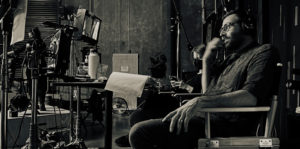
Sarah: Well, Beverly Hills is a very particular crowd. There, you are going to wind up with people who are mostly Jewish. I feel we haven’t had the opportunity to share this film enough to have a good answer yet. However, I think the trajectory of opportunities to show this film has changed. Earlier, it was a commonality that you won’t ever have a distribution for a movie traversing topics associated with Saudi Arabia, Israel, etc. But that process has changed since the January protests [reference to 2023 Judicial Reform Protests in Israel]. And it has led Jews in America and the most conservative and separatist groups to realize what political intervention has done there [in Israel]. That change has been optimistic. I don’t want to sound like we are benefitting anything from a horrible series of events about this issue. Still, I feel there is a straight line connecting those protests to our ability to have this film shown.
Adam, Karim, and Mousa – You three play three different character types of Juliano Mer-Khamis. And throughout the film, you get to transit between those types, changing dresses and adapting to different shades. What was your approach to the role, and how familiar were you with the work of Juliano Mer-Khamis?
Adam: I did know about Mer-Khamis. I grew up in Israel, and I watched some of his movies. And I knew him as a celebrity that everyone liked. He was a really funny, good-looking, larger-than-life character himself. Somehow, however, I missed that he was assassinated because I was here by then. And I didn’t know until I came to the movie that he was killed. However, I knew he was half-Arab and half-Jewish, which is always very strange in Israel.
Sarah: And you bring up that fact about his mixed lineage in the movie very brilliantly!
Adam: Yeah. It’s like nobody likes you. And at the same time, everybody does. You don’t know what to say to people when you meet them. And Mer-Khamis said in his interviews that he is a Jew when he is in Tel Aviv and an Arab when he’s in Jenin, or sometimes vice-versa on purpose, just to piss people off. My character blended both, trying to ignore where he was born because he has no control over it and to understand what all of this means.
Being an Israeli, I have my opinions about the political situation. Still, then I look at the other side just as well. Playing this character, I tried to figure out how someone who went through this complexity would live his life, not his personal life but more of his career as an actor. He wanted to be an actor and still be a normal person who could go to the supermarket. How do you do that when you’re half-and-half and constantly reminded that you’re not good enough for either side? And I feel that’s why he became an activist because he couldn’t take it anymore, being annoyed at these notions about his identity. That’s what I tried bringing forth through my performance.
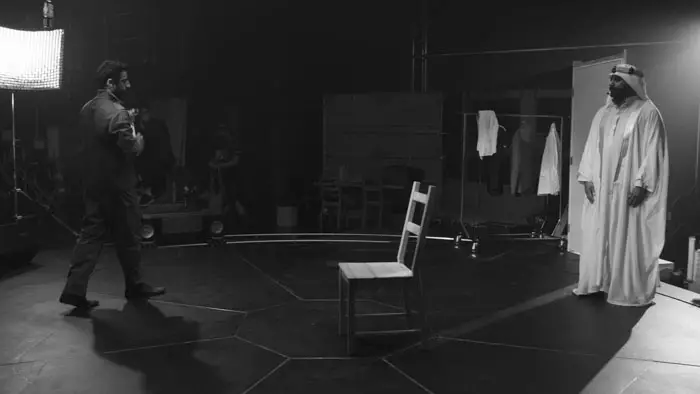
“…he couldn’t take it anymore, being annoyed at these notions about his identity….”
Mousa: I did know of Mer-Khamis. I honestly didn’t know much. I have heard stories about the theater [Freedom Theater, Jenin]. But I was raised here in the States, so much of my work was more focused on films and theaters here. Though I have heard about him, and after I met Michael, I went on to research and dig further into him. I approached him with a skewed version of what I would think a Palestinian would feel in that situation—just coming from the perspective of as many Palestinian voices as I could take from what I have heard and their stories throughout the years. It’s as if I put all that in one character, and if this was the only opportunity to say what they wanted, this was me saying it.
Karim: Yeah, I am glad I was last because I have been trying to remember. I guess for me, whenever I get a script for an audition, very rarely, my first step is to research. My first step is to do an intuitive reconstruction of a passage to a character based on what I am reading. I think I got two scenes for auditioning for this film, both from Amos Gitai’s films. I had seen his whole filmography. But when I was given the audition, the way I function, I didn’t even care to remember where that text was from. I took it very progressively.
My process begins internally with understanding what’s happening on the page, and I go blind. I did allow myself to be aware of Juliano and made all the necessary connections. I have seen his films and met people who have met him. But by then, I had already conditioned myself to the point where I felt like I was going to meet him. I had already made up a lot in my mind. I felt very internal, very intimate. It’s almost like – I read a couple of lines, and I know the context, and then I start dreaming about it and imagine how that [the character] would be.
What was the casting process like for the three character types of Juliano Mer-Khamis?
Michael: I think what’s interesting about the process is that when I cast the actors, they were not cast as specific Julianos. We did a full day of table reading of the whole script thrice, wherein each played a different part because we didn’t yet know how things would go. So, an exciting part of the process was to get feedback from the actors and get a sense of who might fit where. It was interesting to hear how the script has to be rebalanced.
At one point, Karim suggested that I was being too hard on the Israeli’s side and not representing what an Israeli might feel about Palestine as a place. And these discussions made apparent that only Mousa could play the Palestinian because I thought he could bring a sense of humor to that role that nobody would feel right to do, which, at several crucial places, brought much-needed levity to the film. And Adam was interesting because he didn’t agree with everything that was on paper. Yet, he was ready to come in and argue or discuss, though cold on the material, but with strong opinions. And it was precious that we didn’t all agree on what it meant, nor did Sarah. Nobody had a singular, unanimous opinion.
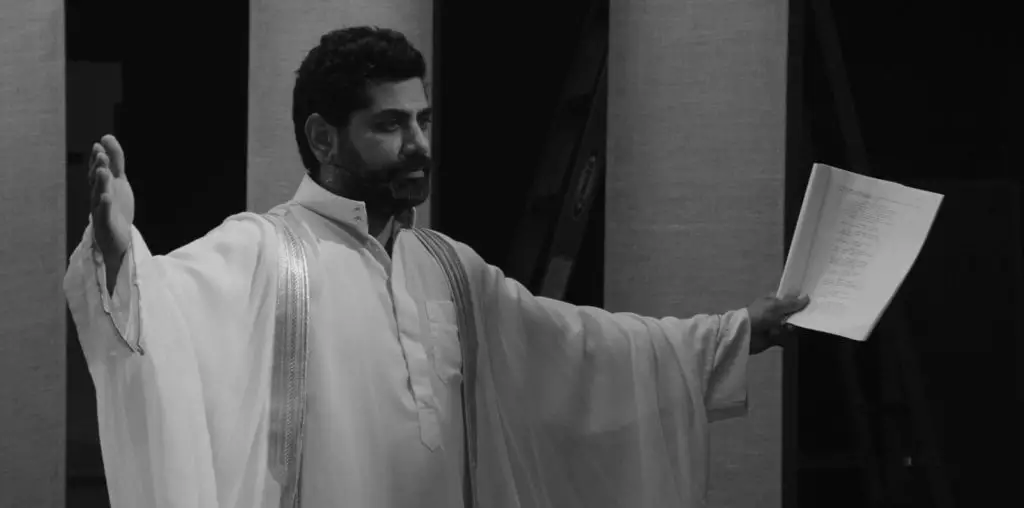
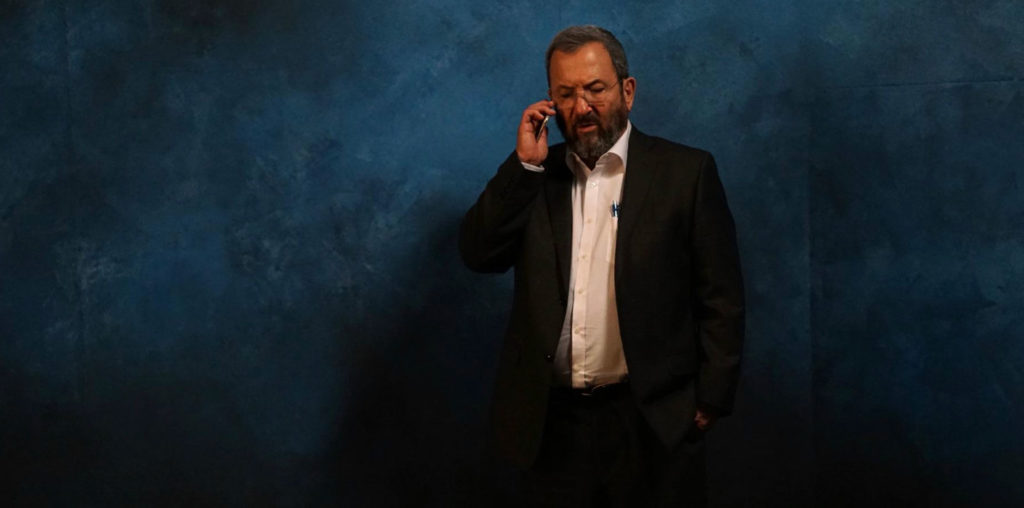
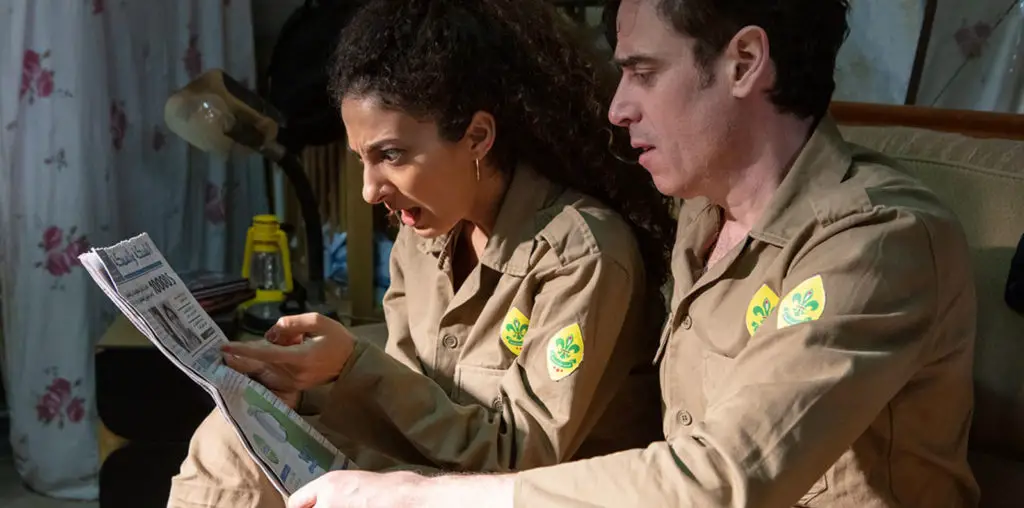
[…] Source link […]